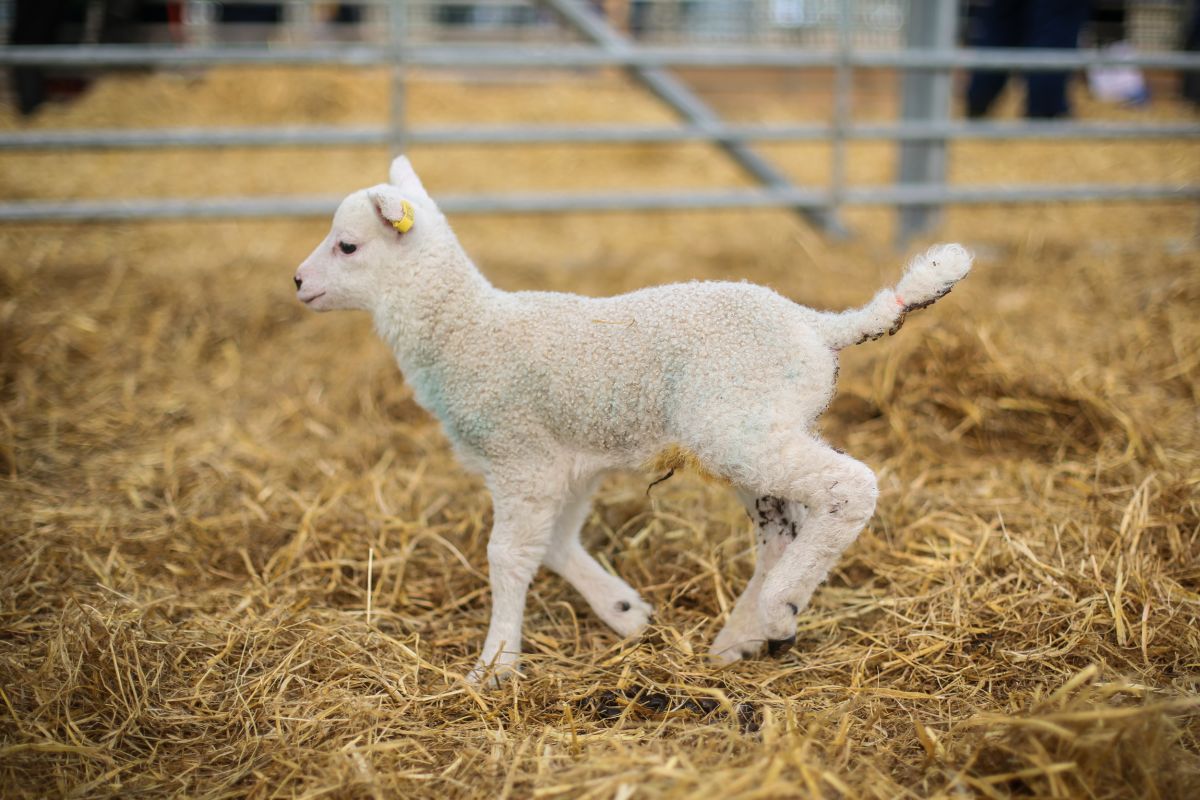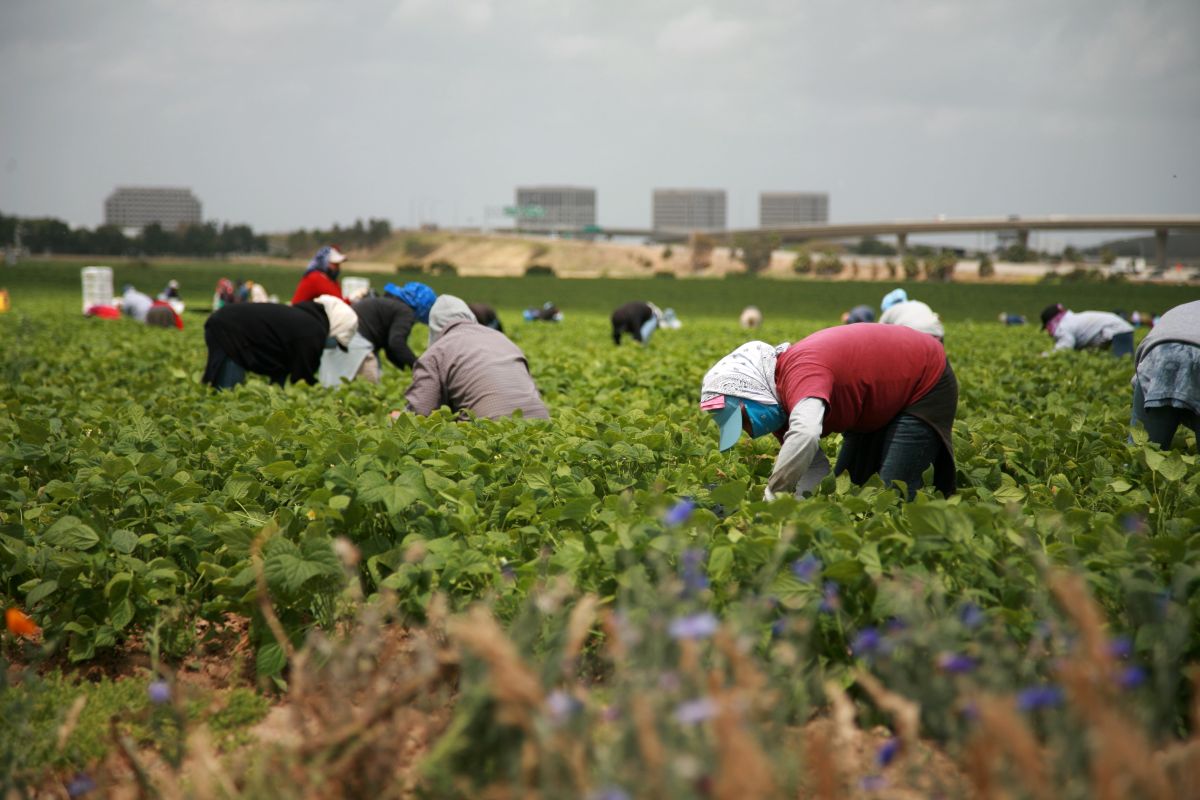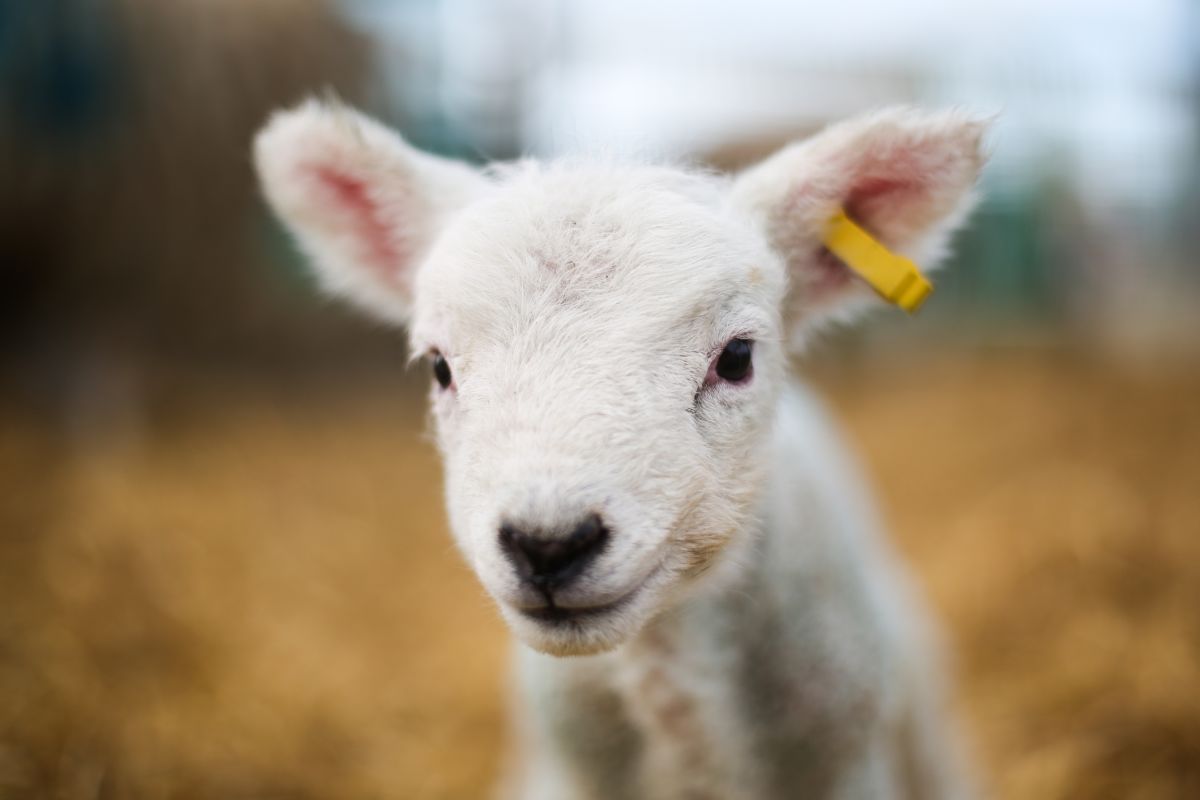
The head of agriculture at a leading farming college has said that the United Kingdom may need to do more to attract British workers into the industry after Brexit.
With British agriculture heavily reliant on migrant labour for both full-time and seasonal work, the industry has been warning politicians that halting foreign workers could have devastating consequences.
John Wray, head of agriculture at Askham Bryan College, says the industry needs to plan to attract more British people into farming to fill the gap.
"I think what we've got to try and do, as well as getting people buying British, is try and get young people who might not necessarily have considered a career in agriculture to be thinking about a career in agriculture because we all know within the agricultural industry there is a lot of Eastern European labour there that may or may not be available in a few years time."
He was speaking to FarmingUK during the college's annual Lambing Sunday event, which is held to give the public an insight into how and where their food is produced.
With the clock now ticking towards the country's departure from the EU, it is also the kind of event that could help showcase farming to potential future workers.
"Nothing's been decided yet but I think agriculture certainly needs a contingency plan and we, as colleges, need to be part of that by encouraging young people to come in and study agriculture because there's some massive career opportunities out there for youngsters," he said.

Visa scheme
Government Ministers have hinted that some form of visa scheme could be established to ensure that British agriculture could still have access to migrant labour.
But the farming industry has warned that urgent action is required to prevent a crisis.
Ali Capper, chairman of the NFU horticulture board, which represents a sector particularly reliant on foreign workers, said: "If we leave the introduction of this scheme until after Brexit, the damage will have already been done and crops will be left to rot in the fields.
"The effects would be felt right through the food supply chain, ending with the public – the people eating the food we produce. The importance of a strong, domestic food supply cannot be understated."
She said: “Horticulture, alone, needs over 80,000 workers to plant, pick and pack fruit and veg. That number will rise to 95,000 in the next four years. Shortages aren’t just limited to fruit and vegetable growers - workers from across the skill spectrum are needed for an industry that is worth £108 billion to the nation’s economy. People are needed to process and pack meat in the livestock and poultry businesses and to drive complex machinery on cereals farms.”

'Increasingly reliant'
AHDB, which has produced a series of reports on the implications of Brexit, said in a report on labour: "The seasonal nature of demand and falling unemployment in the UK have resulted in the UK agricultural industry becoming increasingly reliant on a supply of labour from Europe."
It said: "Employers in the UK agricultural and horticultural sectors, along with those further up the supply chain (i.e. food processors), hire both permanent and seasonal migrant workers. Maintaining this supply of labour is an important factor in influencing the competitiveness of the agricultural industry, and the wider economy post-Brexit."
The report, which was produced by David Swales, head of strategic insight at AHDB, and senior analyst Sarah Baker, said: "It attempts to fill vacancies with UK workers have proved difficult in the past. It would appear that UK workers would prefer permanent work, better locations and more sociable hours.
"In addition, the UK benefit system does not work well for seasonal workers when their contracts come to an end. Therefore, if UK agriculture is to continue in its present structure, it either requires access to migrant labour or an alternative solution."
Attracting young Brits
John Wray says that one solution is to try to attract young British people who would not necessarily have considered a career in agriculture previously.
He said that the Lambing Sunday event was very popular with members of the public.
"We have several thousand people come in of all age ranges, from great grandparents down to babies and young children."
He said the event was an attempt to "educate the general public a little bit more about where their food comes from, whether it be lamb, whether it be milk, whether it be beef, whatever."
John said: "We've been doing it every year for the last nine years. We started off very small with probably 50 or 60 people on a dreadful day. I think it was snowing, it was blowing, it was raining, it was horrible. It's grown just like topsy. I think two or three years ago we had 10,000 people through the gate, which is an awful lot of people in a relatively small area. Each year we try to develop it so there is more and more space and more things for people to do."
He said: "The crowd here is massive. We opened at 10 o'clock and already people are queued around the corner just waiting to come in and see the sheep. That's something that, as a farming community, we take very much for granted. But for the vast majority of the population it's so fascinating and interesting to come and look at these fluffy little things running around with their mums."
Generating renewed interest
John Wray would like to see some of the interest generated by events like Lambing Sunday generate renewed interest in a career in farming.
AHDB said in its Brexit report that, although unemployment in the country was relatively low, it was "clear that there are potential domestic sources of labour which could be used."
It said ONS figures for August 2016 indicated that there were 1.6 million people who were unemployed and 8.8 million people aged between 16 and 64 who were economically inactive.
"There will be multiple barriers to overcome to move these people into the workforce." It said not enough people were interested in this type of work, remote locations deterred take-up of employment, as well as unsociable hours and the fact that many vacancies were seasonal.
Many people may prefer to remain outside the workforce than take a seasonal or relatively low paid role, said AHDB.
